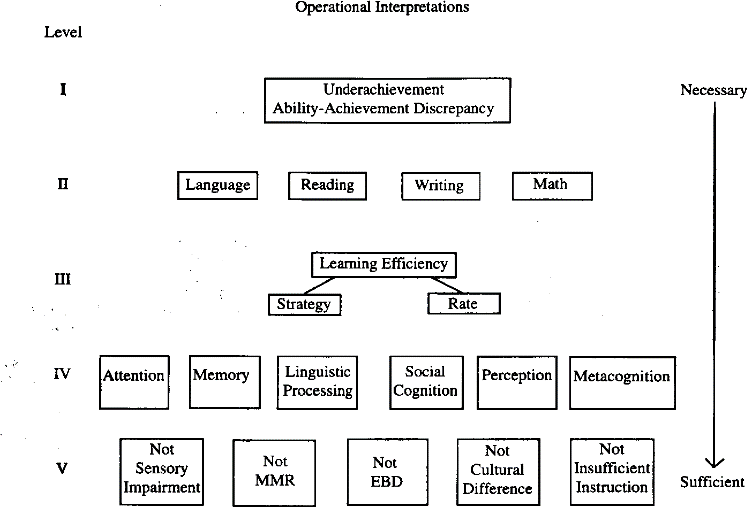Become More Sensitive while Speaking with a Person with a Learning Disability by Avoiding These Words
27th October 2020

People with learning disabilities have heardwords nonstop that do more harm than good, therefore, it’s better to avoid certain things to say as a form of encouragement. Individuals with learning disabilities have constantly faced pigeon-holes from every social group as well as their families.As a common myth, most people would take on that children with disabilities are no longer normal. Numerous people with learning disabilities are imaginative and non-conventional and it’s really not unusual to see them as matured ones.
People with any type of infirmity keep on stumbling upon obdurate questions, propositions, and statements. Sometimes, these obstinate words frequently turn invasive, even if anyone doesn’t anticipate them to be.
Thus, spare a few moments of your precious time and read on to distinguish what not to say to a person with learning disabilities. Trust us, these recommendations will aid you grow as a settled civilian of an all-encompassing society.
Please note, these are subjective!
Don’t Say These Things to an Incapacitated Person
“What’s wrong with you?”
Remember that there is nothing wrong with a person who has a learning disability so do not ever ask “What’s wrong with you?” Well, in any discussion, asking anything desperately personal is not ok. Avoid phrases like “were you born that way?” With the time, as you get to know someone who has a learning disability better, you might fright to talk their infirmity – then remember, some persons might be very easy talking about their disability, while others may not be, so take indications from the person themselves.
"You're SPED"
Please don’t say this to a child or a person, who has a learning disability, it seems like the nastiest time to call someone that. Because they are “slow” in class, it doesn’t mean they won’t recognize the answer. Just because they hit the books in a different way, it doesn’t mean they are “problematic” to teach.
“You are really an inspiration!”
A person simply does not become an inspiration just because he/she is a person with special needs. You can complement a person with special needs for his/her achievements (if they have some) but don’t applause them for getting up and doing their daily responsibilities like you and everybody else does. They usually don’t want sympathy from others.
“Don’t make your disability an excuse see that person too has the same disability”
Please don’t use the person with a learning disability as an example. The leading thing you need to comprehend is that what looks ‘same’ to you might essentially be much altered in reality. Remember, the physical strengths as well as weaknesses differ significantly even among the persons tormented with the same kind of infirmity. The case of person with learning disability achievers is that they are different from the masses.

(Ref: https://bit.ly/3ksFaaB)
“You don’t look like you have a disability”
Yet again, this is a well-meaning feeling that comes across all wrong.See, having a debility is part of a lot of people’s distinctiveness and it’s not something they see as a destructive, and nor should you too.Whether an infirmity is evident or invisible, people with an infirmity can be spectacularly attractive.
“Here, let me do that for you”
Of course this is silly.One and all can use a little assistance now and then, whether they have a special need or not – so this is a tad of a complicated one. There’s a big dissimilarity between proposing a helping hand, and taking over.You might wish to make things easier for the person, but it’s important to respect their space and individuality.
“You should get married; it will be too big of an accountability for you to manage”
The problem is people think that they can take a better life verdict for the people with special needs. This is absolutely bizarre, no one gave anyone the right to measure a person’s ability of managing their responsibilities.
“Your Disability is not as serious as that of Another Person”
Whatever the circumstance may be, the proclamation is wrong and counterproductive. From time to time, this statement is made as a practice of reinforcement that the child should be happy that their situation is not as poorer as the next person. While in other times, it could be said to estimate how much help someone is permitted to. People with special needs have variable strengths as well as weaknesses and should never be associated with others with special needs.
“You Look Okay to me”
Excuse me?! Usually, most people with learning disabilities have to deal with this typecast. For general people, it would be problematic to believe that someone has a learning disability if it is not something they can see substantially. Rather than being distrustful to them or expressing surprise, general people should try to learn more about their special need and to see if there is any way they could offer them help. This is better and more useful.
“You can achieve anything you set your mind to”
Avoid saying this! Because saying this to someone with a learning disability is completely wrong, especially when you don’t even know what they set their mind to accomplish in the first place. For most of the general common people, this is just one the various ways to inspire someone with a special need. For people with learning disabilities, it is just one of the many needless words of reassurance they would never want to hear.
Some of the most popular things that a person with learning disabilities is tired of hearing are:
- “Oh, do you have Dyslexia? I’ve heard of that.”
- “What happened?”
- “You look so healthy”.
- “Everyone has a disability too”.
- “You are Too Young/Pretty/Intelligent to have a Disability”.
- ““I know a great doctor/priest I bet he could fix you.”
AND SO ON…
These are just a few examples; with the learning disability courses online you can actually get to know so many aspects of a child with learning disability. The people with learning disabilities are continuously blitzed with such crazy explanations and recommendations. Let’s twitch accepting each other with our metamorphoses and create an enhanced world for everyone.
Written By : Aditi Ghose

